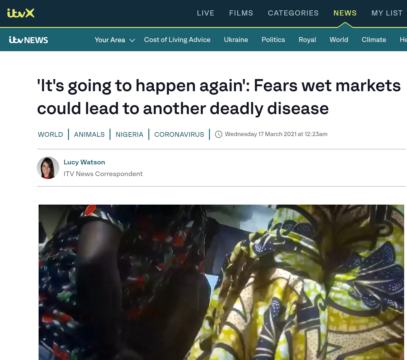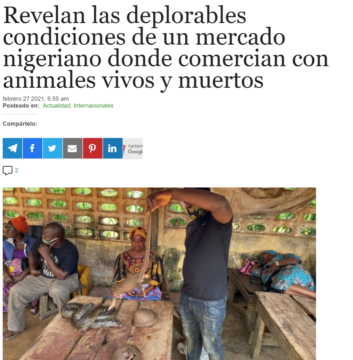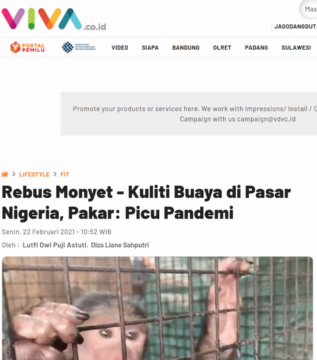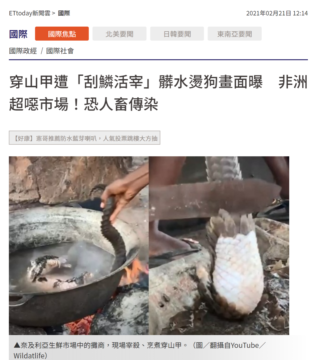Tag: wet markets
Wild at Life e.V. feels incredibly honoured to have been featured in ZDF. We hope that this exposure will help to raise awareness about the bushmeat and wet market industries that exist in some parts of our world. By shedding light on these important issues, we hope to encourage more people to take action towards […]
The article discusses the ongoing debate around the role of wet markets in the emergence and spread of zoonotic diseases. It highlights that many wet markets across the world, such as those in China and Nigeria, continue to operate with
lapatilla reports that wild animals, both alive and dead, are being sold in deplorable sanitary conditions in a wet market in Lagos. And emphasised that all animals are infected with something, and only some are infectious to humans. Having many
Viva talks about the sale of boiled monkeys and crocodiles in these markets, which may pose a risk for the transmission of diseases to humans. The article is in Bahasa Indonesia.
news.de discusses the conditions in wet markets in Nigeria where exotic animals such as pangolins, monkeys, and turtles are sold dead or alive. The footage and images from the markets show that animals are kept in filthy cages and sometimes
ET Today reports on the efforts of Wild at Life e.V. to rescue pangolins, sea turtles, antelopes, baboons, crocodiles, and other animals from the Oluwu fresh market in Nigeria where they were being slaughtered and sold for food. The article
Daily Star provides a glimpse into the Nigerian wet markets, which are known for selling various wild animals, including endangered species. It also highlights the rampant illegal wildlife trade in Nigeria, with pangolins, turtles, and primates being among the most
The Scottish Sun published an article depicting the horrible scenes found at Oluwo Fish Market, Nigeria, where animals are skinned and boiled alive. Not only is this cruel, but many are concerned that this could be a breeding ground for
MKRU reports on the unsanitary conditions of a wet market in Lagos, Nigeria, where both dead and live wild animals can be found. Market workers do not disinfect – let alone clean – surfaces or tools, and do not wear
This article from Daily Mail reports on the deplorable conditions in wet markets in Lagos, Nigeria where a wide variety of wild animals, both alive and dead, are being sold in unsanitary conditions. The market raises concerns that the next
Semana talks about the dangers of wet markets, and how past known pandemics and diseases originated from animals before infecting humans. The article is in Spanish.
In this article, Express Digest discusses the origin of HIV, the outbreak of COVID-19, and how wet markets in Nigeria are as deadly. The article is in English.
Big World Tale wrote a piece on cruelty seen in Nigerian wet markets and the dangers they possess to the human population. The article is in English.
Following the discovery of the COVID-19 pandemic, scientists, governments & wildlife non-governmental organisations (NGOs) are on the same page: the destruction of biodiversity by humankind creates new viruses & diseases. Wild at Life e.V. is fighting on the ground to






